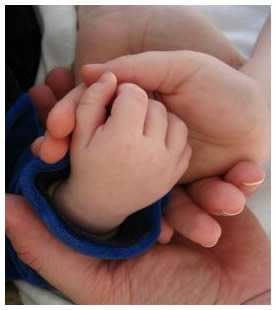 Parenting is the most important job in the world. It is also the most difficult. The responsibilities inherent in the position of CEO of a multi-national corporation pale into insignificance when you consider the qualifications necessary for being a good parent. So why is parenting so hard?
Parenting is the most important job in the world. It is also the most difficult. The responsibilities inherent in the position of CEO of a multi-national corporation pale into insignificance when you consider the qualifications necessary for being a good parent. So why is parenting so hard?
Parenting is hard simply because the skill level required to be an effective parent is very high. Only certain personality types are really suited to the job of parenting. A certain level of maturity is also required to adequately perform the role of parent. In short, a person applying for the position of parent needs endless patience, perseverance, an ability to empathize with young babies, children, teenagers, and young adults. They require imagination, first aid training, nursing skills, a thorough knowledge of dietetics, good physical stamina, a high tolerance for pain, noise, frustration, and a slow temper. Most importantly, the potential parent needs to be emotionally mature. They need to have reached emotional adulthood to have any hope of providing a suitably nurturing, stable atmosphere in which a newborn infant can thrive.
Yet this is only the beginning. Being a parent involves the continual experience of sorrow and loss on the one hand, and joy and happiness on the other. Parenting is a real roller coaster ride. This alternating sadness and celebration is present almost from the very first day of your baby’s life.
Your baby learns to smile at you. S/he learns to stand, and ultimately, walk. Those first steps bring such happiness to a household, particularly for the first child, when everything is new. Yet with that first step comes a complimentary pang of sadness. Your child now possesses the skills to walk away from you, and either subconsciously or consciously, this fact registers in the brain of the parent. One day we are feeding our child their every mouthful. In the blink of an eye, our child can feed itself. We rejoice in our child’s growth, and our own freedom in not having to manually feed our child at every mealtime. Yet with every step forward, there is an inherent sadness about all that is being left behind.
As the famous psychologist, Erich Fromm once stated:
The mother-child relationship is paradoxical and, in a sense, tragic. It requires the most intense love on the mother’s side, yet this very love must help the child grow away from the mother, and to become fully independent.
What Fromm was trying to tell us is that to be successful parents, we must give our child quality love. And yet the higher the quality of love that the child receives, takes that child further and further away from its caregivers. This is the paradox. Yet it is a natural and healthy part of life. The best parents equip their child with the very skills that will enable the child to leave the parents and survive on their own. People with poor parenting skills produce children who, even when they have left the security of the family nest, are in fact much more dependent individuals than those from stable backgrounds.
So being a good parent is essentially a bittersweet experience. There are gains in personal freedom for us as our children age and become more self-sufficient, but those gains are accompanied by the knowledge that our children will never see us again as their only world, as their “gods”, and we will never again play childhood games in quite the same way as we once did when they were very small.
Parenting is indeed difficult because there are so many physical and emotional aspects to the job. And no pay! But we as parents need to embrace the idea that we can watch the unfolding of our children’s lives with mixed feelings. We can enjoy the freedom of regaining our own lives back with each step our child forges ahead, while at the same time letting ourselves experience the grief of the loss of each little childhood event. We can do both. And learning to do both successfully allows us to be truthful to ourselves, and to our children. And it allows us to be successful parents and friends to our own grown-up children when the time comes.
Contact Beth McHugh for further information or assistance regarding this issue.

